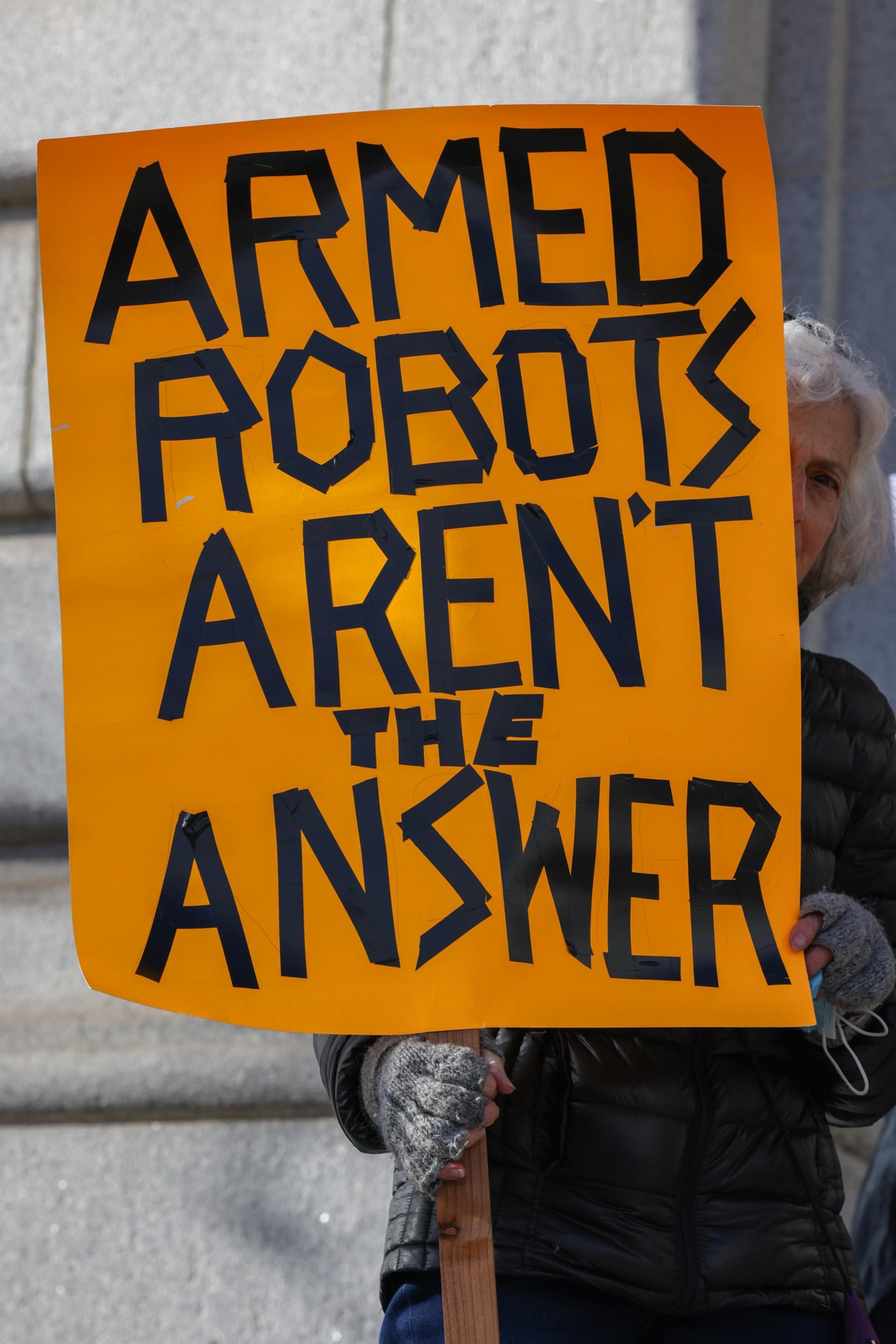Gallery of 6 photos
the slideshow
Protesters gathered outside City Hall Monday morning to let officials know “the fight against SFPD’s killer robots doesn’t end here.”
Killer robots dominated discussion at Tuesday’s Board of Supervisors meeting, which OK’d some rules to let SFPD use the machines in life-or-death cases.
Board President Shamann Walton opposed the idea with supervisors Hillary Ronen and Dean Preston joining him; all were present at the protest along with other activist groups.
A flier advertising the event from SF’s Democratic Socialists of America chapter said: “No killer robots!”
“Science-fiction has no place in San Francisco on this day,” said Service Employees International Union member Nicole Christian. “We are not going to turn San Francisco into a war zone.”
“Policies like this one do not exist in a vacuum,” said James Burch of the Anti Police-Terror Project. “This is a town where police are not held accountable by design.”
Supervisor Walton worried that the machines could be hacked, he added: “We know disproportionately that those weapons will be used against people of color.”
Supervisor Preston said: “There is no way that I am going to sit by silently and allow a policy as dangerous and reckless as this to go into effect.”
Preston also claims the policy has violated state law as the policy did not give enough notice to the public.
Supervisors spent two-and-a-half hours deliberating on when and how police could deploy the remote-controlled machines.
The so-called “killer robot” rules stemmed from a much larger policy (opens in new tab) on how SFPD can deploy all its military equipment. But the idea of robocops policing the city captured national attention, inspired fiery debate and ultimately passed with an 8-3 vote.
But supporters point out that police would control the robots and would only allow them to seriously injure or kill as a last resort in the face of an immediate, deadly threat. The idea would be for police to use them to stop a mass casualty event.
The Board of Supervisors will meet to vote on the legislation again on Tuesday, Dec. 6.






